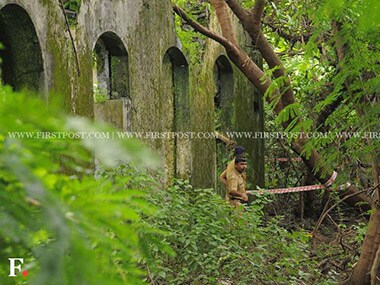Feb 22, 2019 21:59:51 IST
Mumbai: The counsel for the three men convicted in the Shakti Mills gangrape case in Mumbai raised questions before the Bombay High Court Friday on the legal soundness of Section 376 (E) of the Indian Penal Code under which they were awarded the death sentence in 2014.
Advocate Yug Chaudhry, representing the death row convicts Vijay Jadhav, Kasim Bengali and Salim Ansari, told the court the legislature had brought in several provisions of the Criminal Law Amendment Act that provides for, among other things, harsher punishment for rape, in "haste".
 |
| Representational image. Sachin Gokhale/Firstpost |
Chaudhry questioned the idea behind Section 376 (E) that provides for the death sentence for a repeat offender of rape. He said while the section for enhanced punishment was introduced in the IPC through the Act, the legislature had failed to introduce a well-laid out procedure in the CrPC for the implementation of the new IPC section. "For instance, while the section provides that a person who has previously been convicted for the offence of rape can be awarded the enhanced sentence of death penalty in case of repeat offence, it does not clarify how much minimum time there must exist between the two offences or the conviction date of both the offences," Chaudhry argued.
"In the present case, the sessions court convicted the accused in two separate cases of rape committed a month apart. But the conviction in both the cases was awarded within a day from each other," he argued. Chaudhry argued that no provision of law must be implemented arbitrarily and the law mandated the CrPC lay down the procedure for implementing all penal provisions. He also cited previous judgments of the Supreme Court and some Law Commission reports that prescribed enhanced punishment for repeat offenders only after ascertaining the possibility of their reform after their first sentence.
A bench of Justices BP Dharamadhikari and Revati Mohite-Dere is conducting the final hearing on the writ petitions filed by the three convicts challenging the death sentence awarded to them under IPC Section 376 (E). In April 2014, a Mumbai court had found five persons guilty in the 2013 gangrape case. One of them, Siraj Khan, was sentenced to life imprisonment, while a second person, a minor, was sent to a correctional facility. Jadhav, Bengali and Ansari were sentenced to death under the then newly-introduced Section 376 (E) since they had also been convicted in a previous case of gangrape.
The three, however, moved the high court soon after their conviction, challenging the constitutional validity of the law under which they were sentenced to death for a repeat offence. The petitioners challenged the sessions court order allowing the prosecution to invoke the IPC Section 376 (E) when the trial was already underway. They also challenged the constitutional validity of this section, brought in by the Union government after the infamous 2012 Delhi gangrape case. In March 2013, the Union government amended the rape laws in the country, introducing several stringent provisions, including Section 376 (E). This section says if a person, who has been previously convicted for rape under the IPC Section 376, is subsequently found guilty in a similar offence, the courts can sentence him to imprisonment for the rest of his life, or, even award the death penalty.
On 19 March, 2014, the three petitioners were convicted for raping a city-based telephone operator. The next day, they were convicted for raping a photojournalist in the premises of defunct Shakti Mills in Mumbai. Both crimes had been committed in 2013 within a month from each other. While the sessions court was scheduled to begin arguments on their sentence, the Maharashtra government moved an application seeking framing of an additional charge under Section 376 (E) since they had also been convicted in another case of rape. The sessions court found merit in the submissions of the prosecution and in April 2014, awarded the maximum punishment of death to the three petitioners, noting they were repeat offenders.
While the state government filed a petition in the high court seeking that the death sentence be ratified, the three convicts filed pleas in the high court challenging the constitutional validity of the Indian Penal Code section under which they were awarded the punishment. The Central Government is likely to begin its arguments in the case Wednesday.
No comments:
Post a Comment